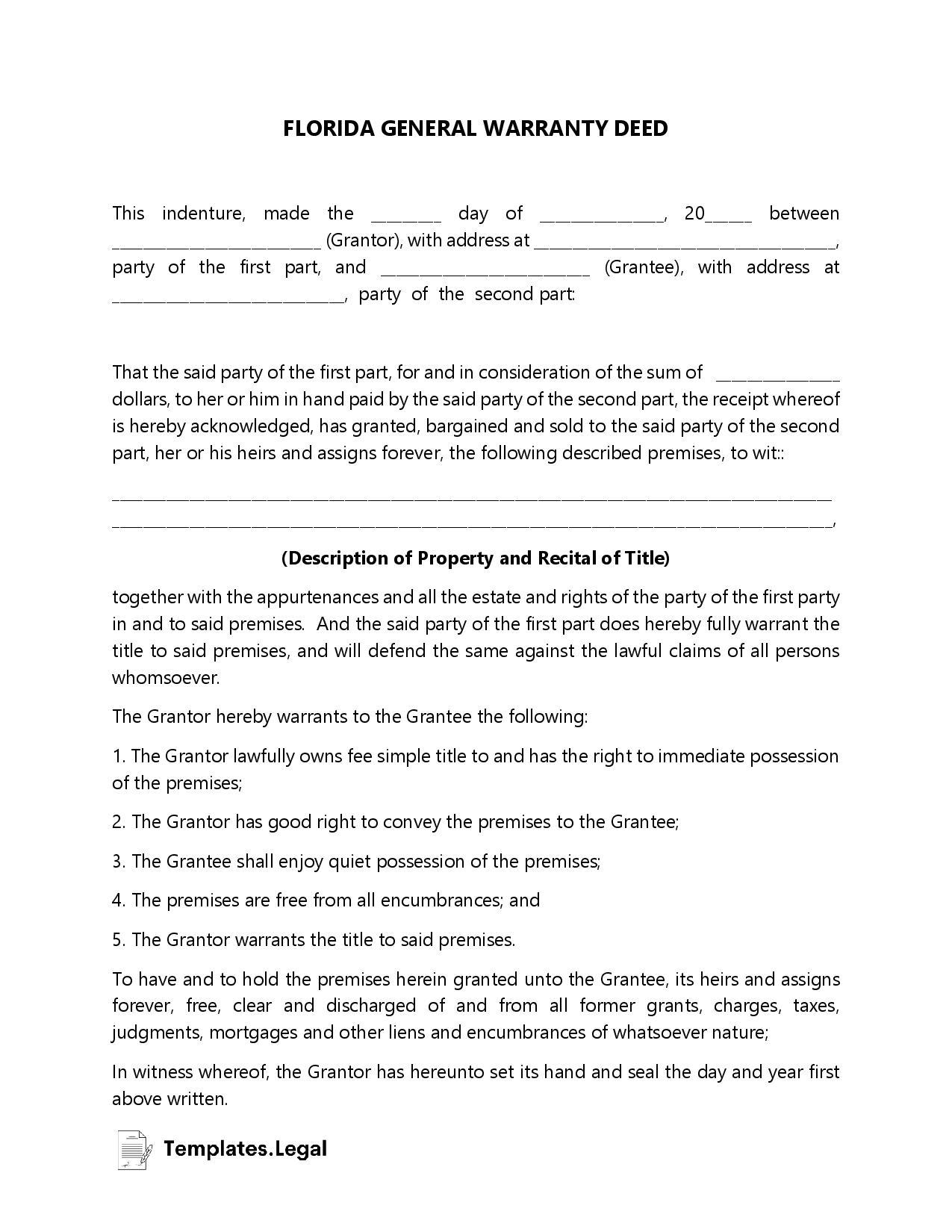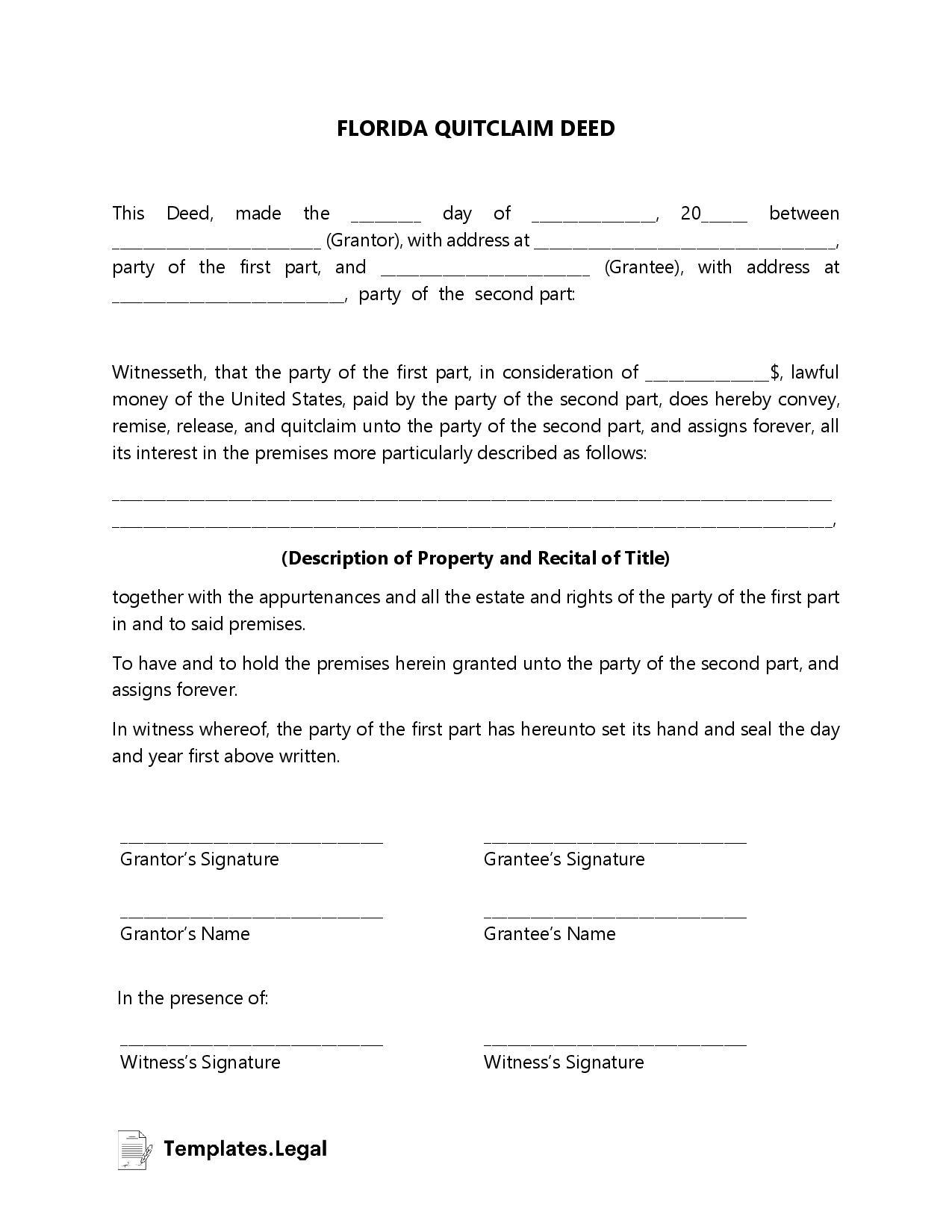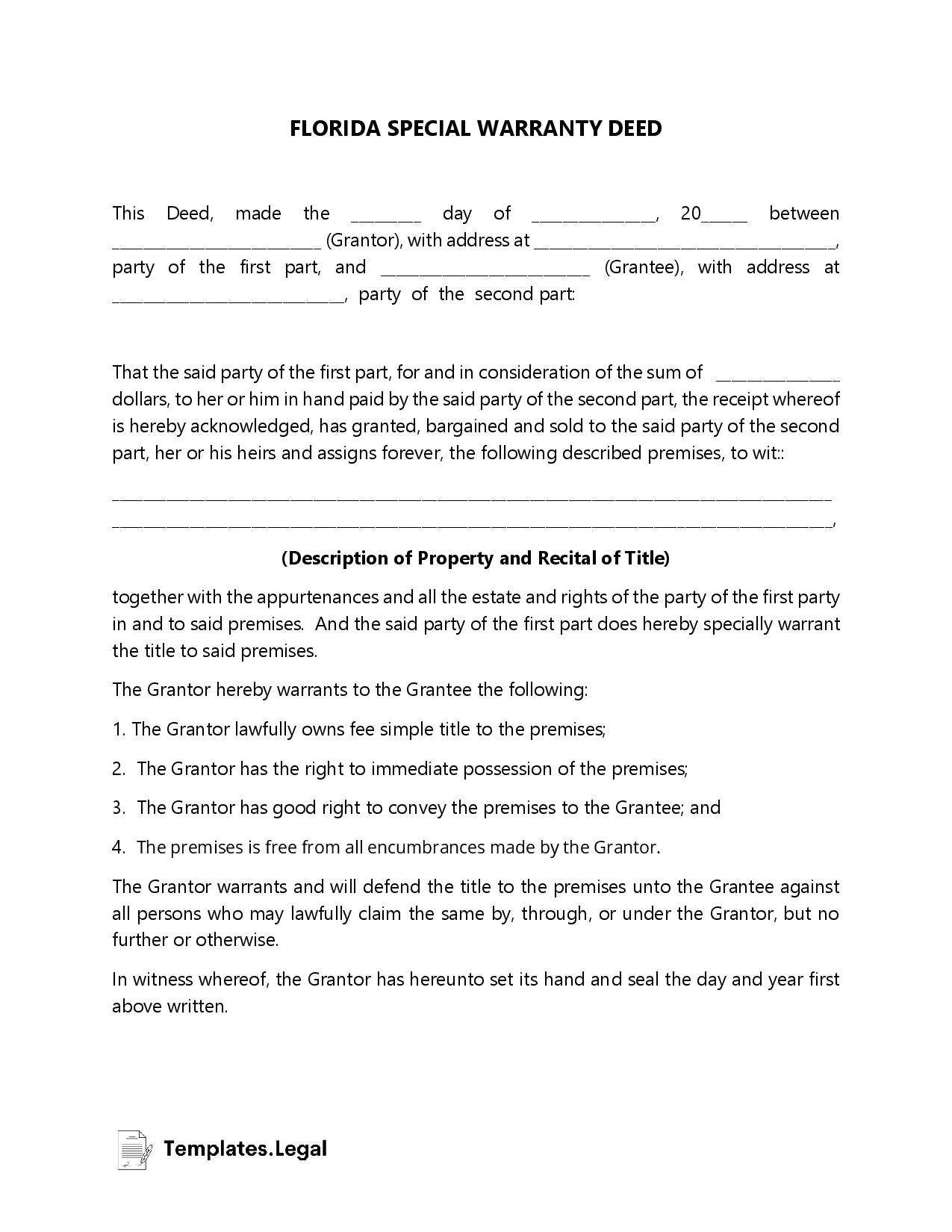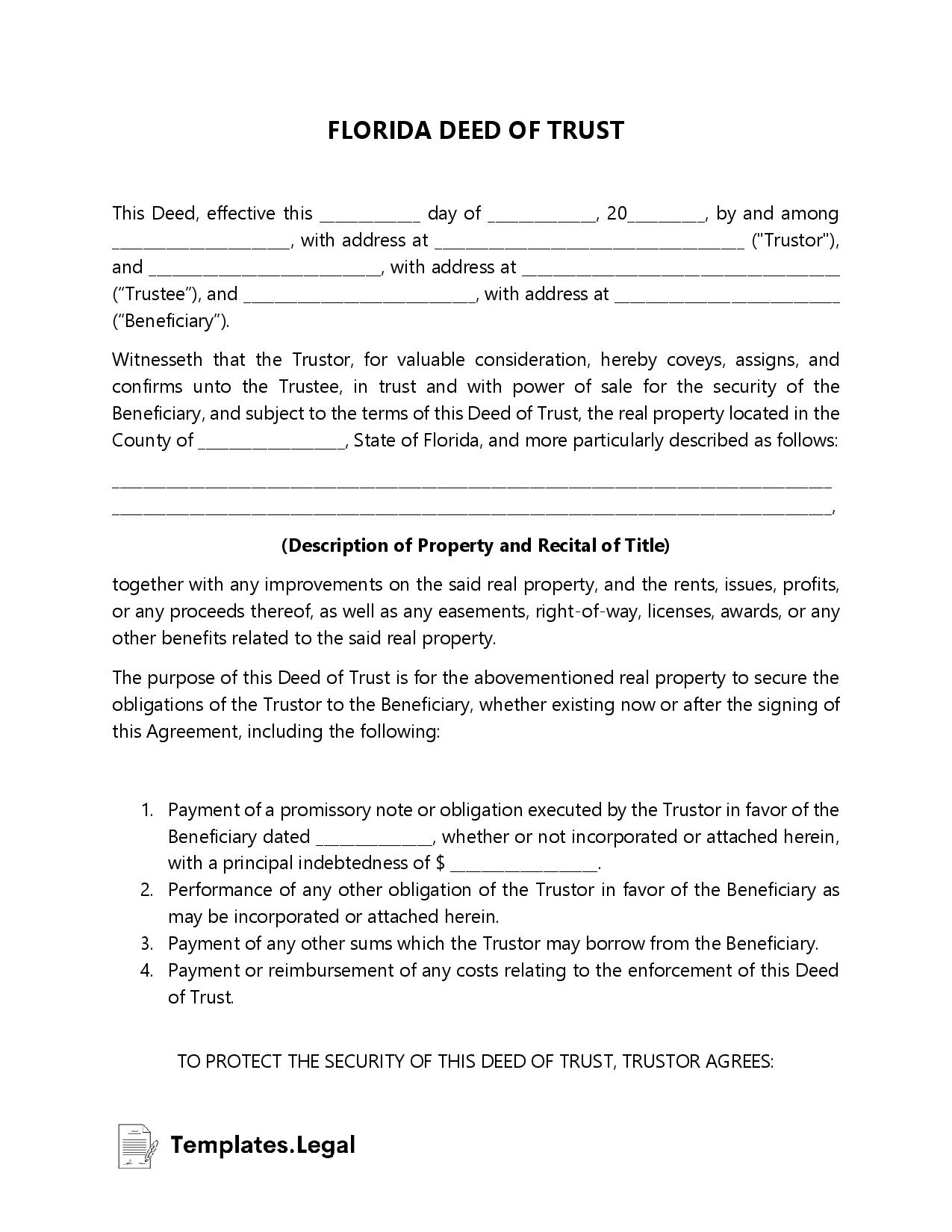Florida Deed Forms & Templates
If you’re researching Florida deed forms, there are four types you need to know. We’re going to go over the types of property deeds you can use to transfer real estate holdings in the state of Florida.
Florida General Warranty Deed
A Florida warranty deed is standard in the world of Florida real estate. This kind of deed is considered safe because it offers the most protection to the buyer.
When a general warranty deed is signed, the owner is saying that they have the right to transfer the property, and nothing would prevent them from transferring it.
Florida Quit Claim Deed
The purpose of a Florida quitclaim deed is for someone to state that if they own an interest in the property that they are “quitting” their “claim” to the property.
A Florida quitclaim deed does not come with warranties or guarantees that the title is otherwise clean. It only relinquishes the quitter’s interest in the property.
Florida Special Warranty Deed
A Florida special warranty deed is similar to a general warranty deed but with a more limited scope. Like the general deed, this can transfer property from one person to another and make the same claims as a general warranty deed (that the seller owns the property, etc.).
Basically, in Florida, a special warranty deed guarantees the title against defects arising only when the seller holds the title. This means that that guarantee does not extend to the property’s entire ownership history.
Florida Deed of Trust
If you’ve bought or sold property outside of Florida, you may be familiar with a deed of trust. A deed of trust operates similar to a mortgage in that it’s an agreement between the lender and buyer that the lender will hold the property until the buyer can pay off the loan.
What you should know is that Florida does not recognize deeds of trust in its state law.
FAQs About Florida Deeds
If you still have questions about transferring property in the state of Florida, here are the answers to frequently asked questions:




